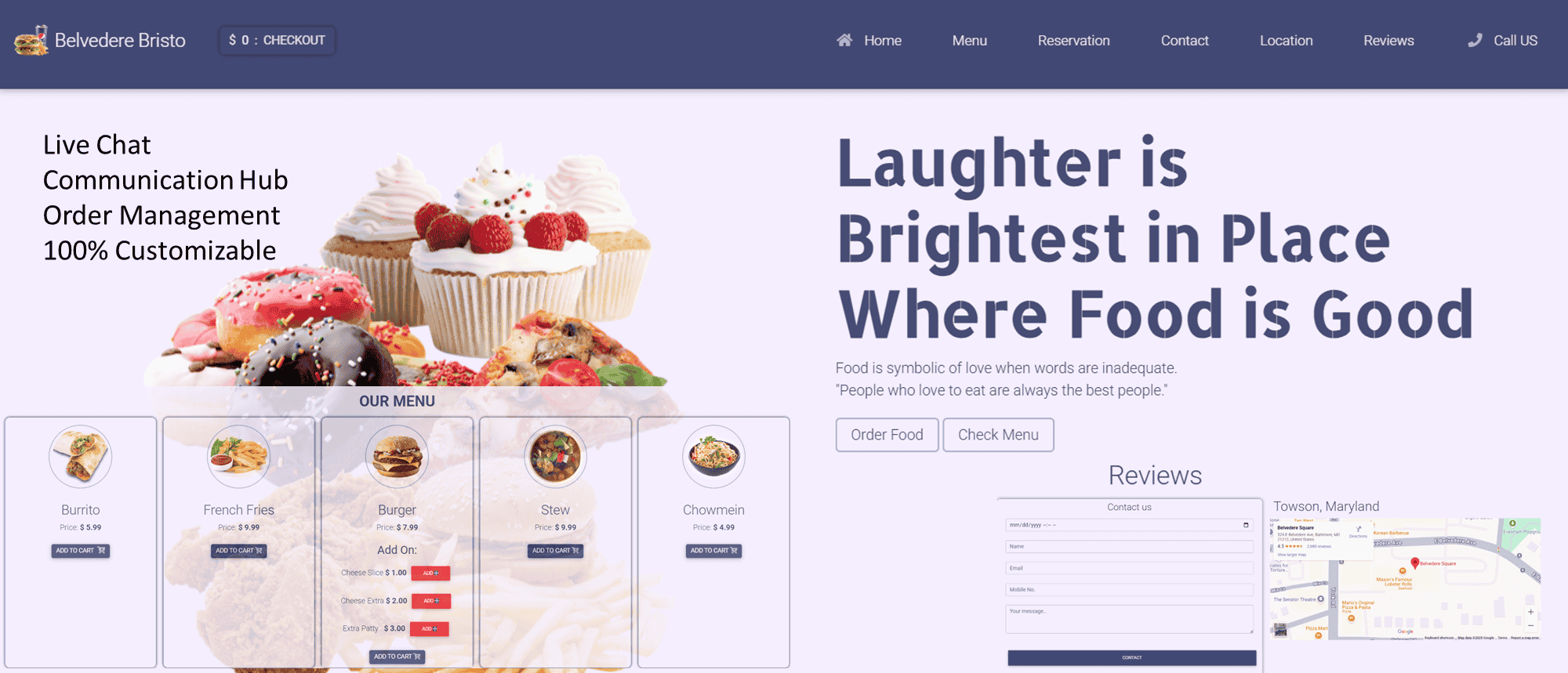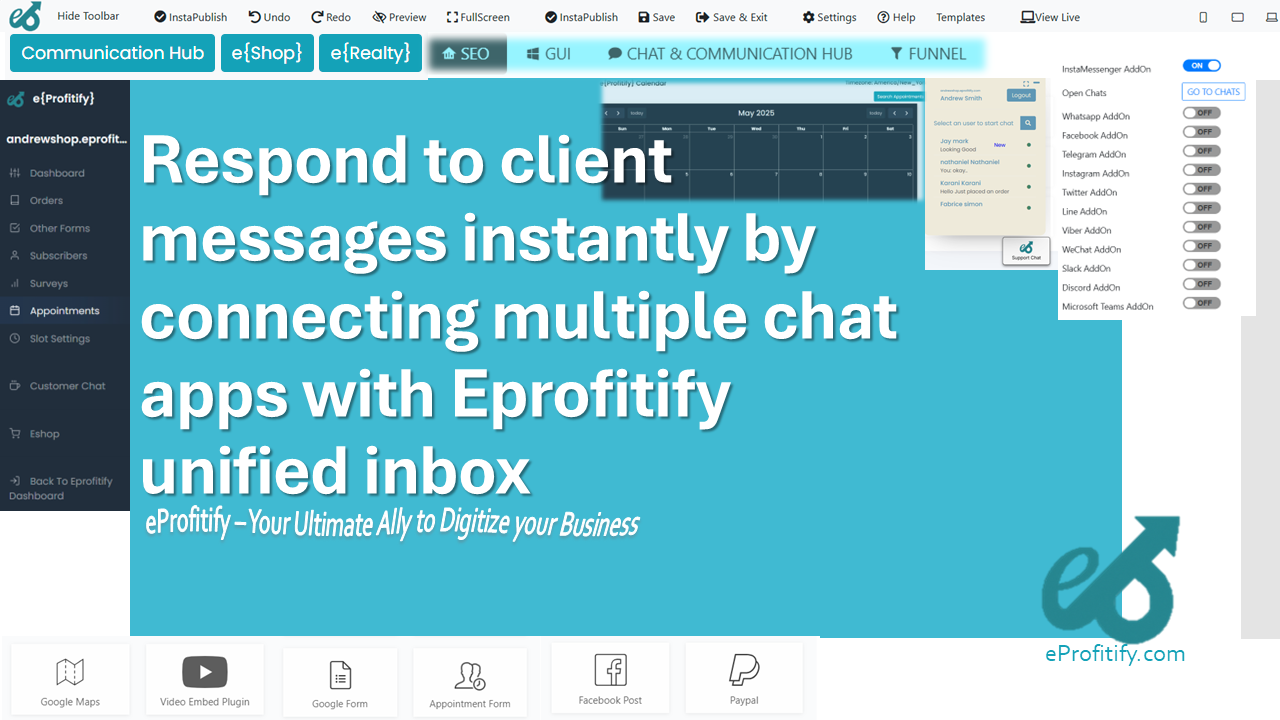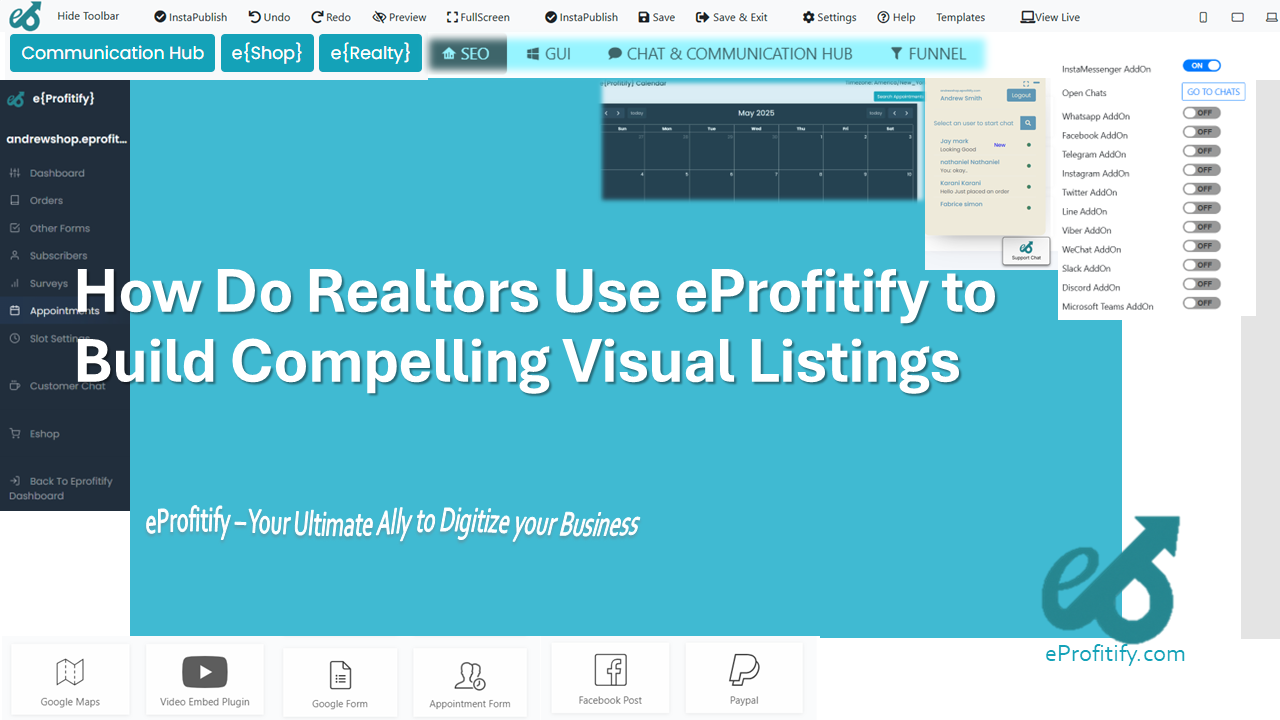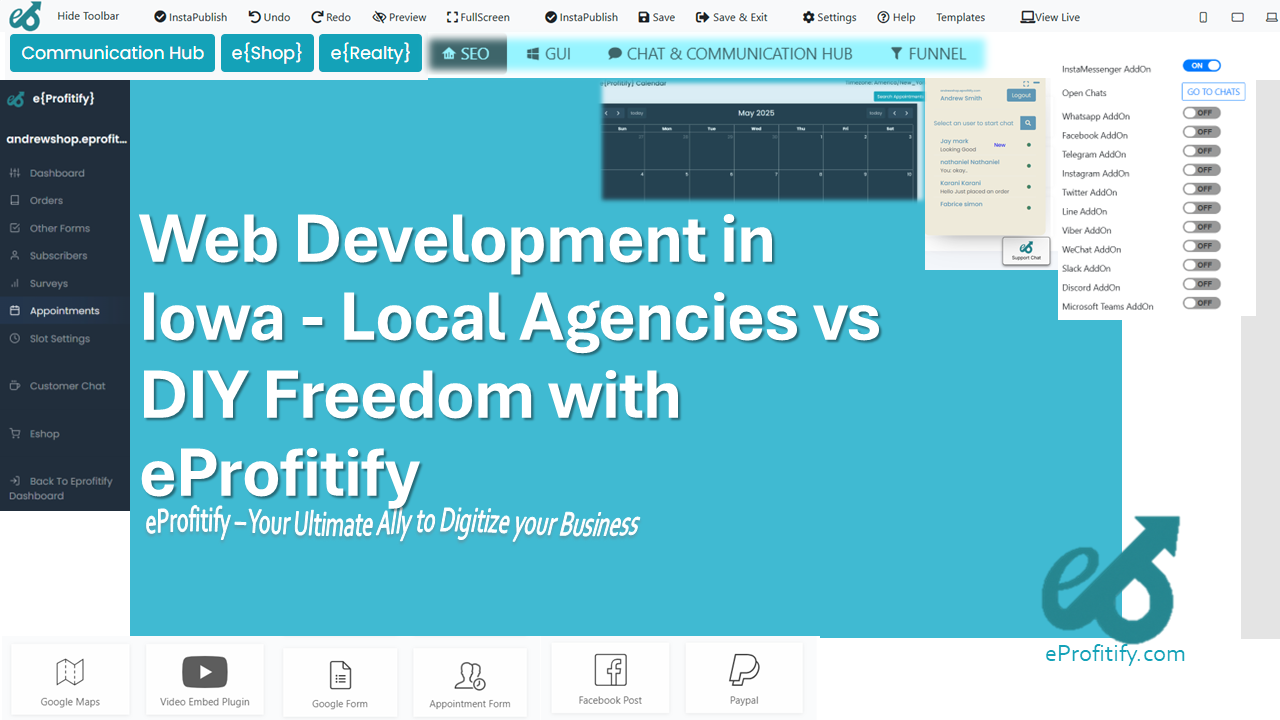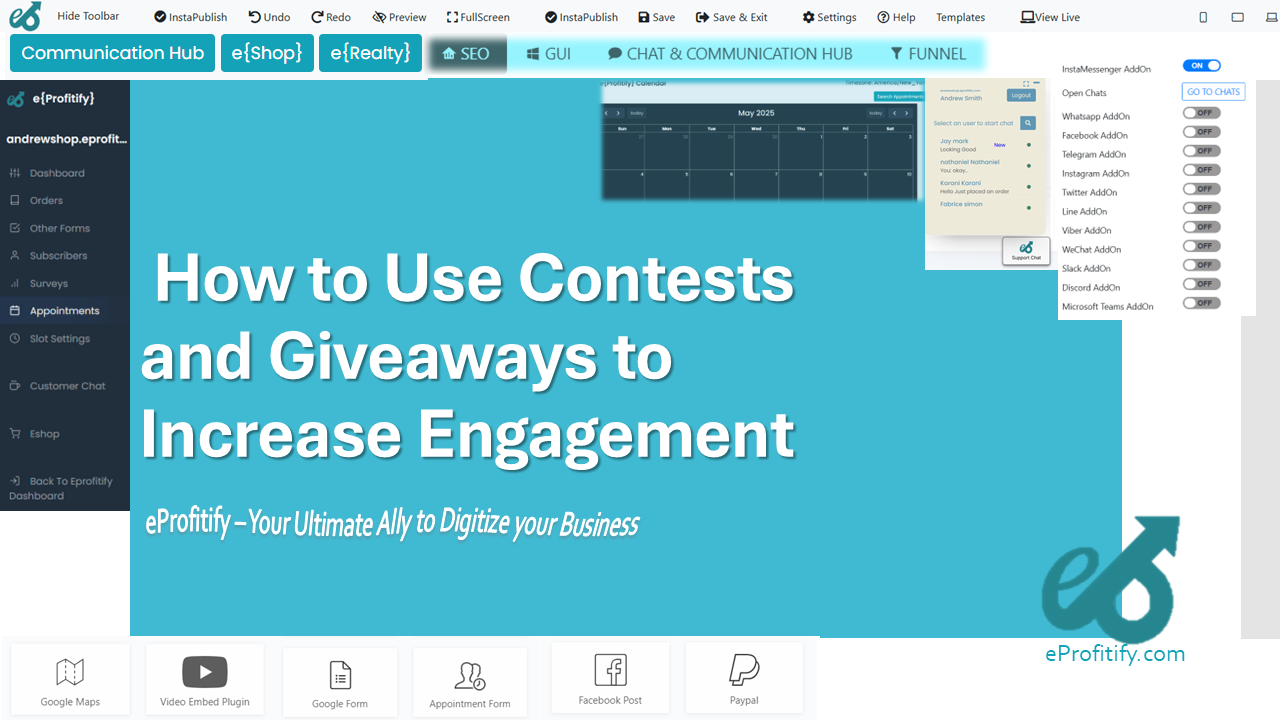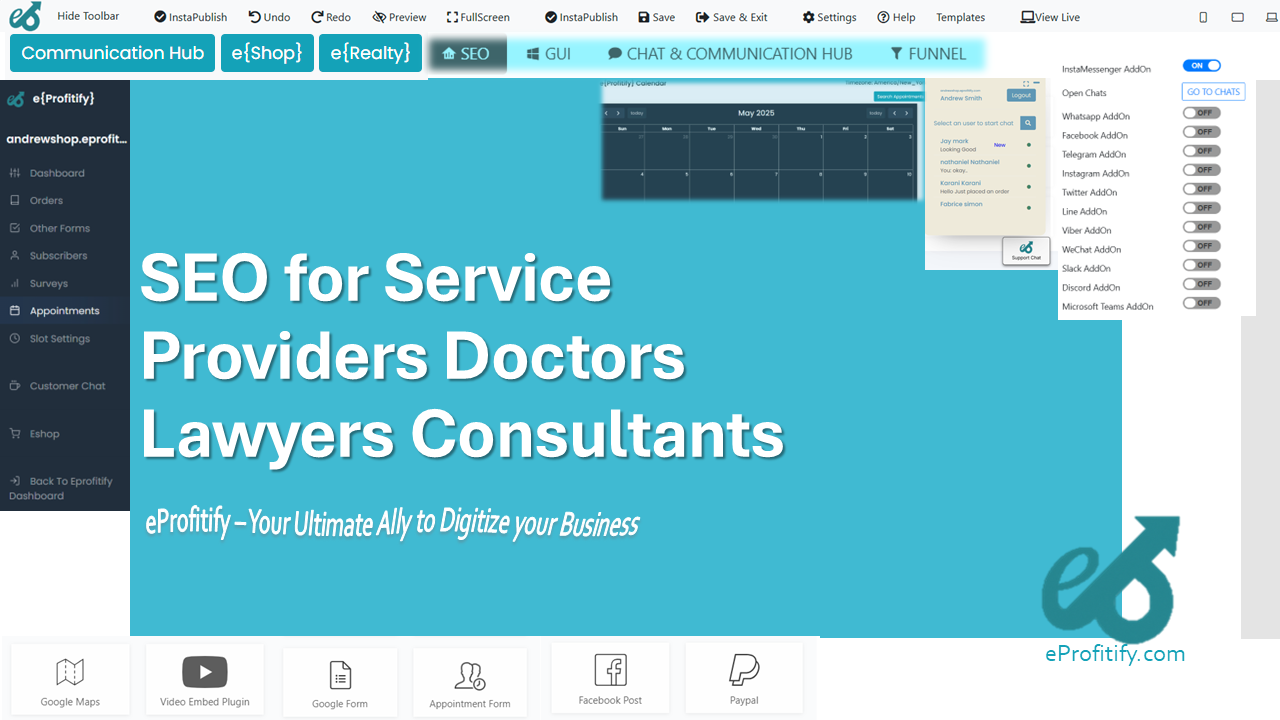SEO Ethics Black Hat vs White Hat Tactics
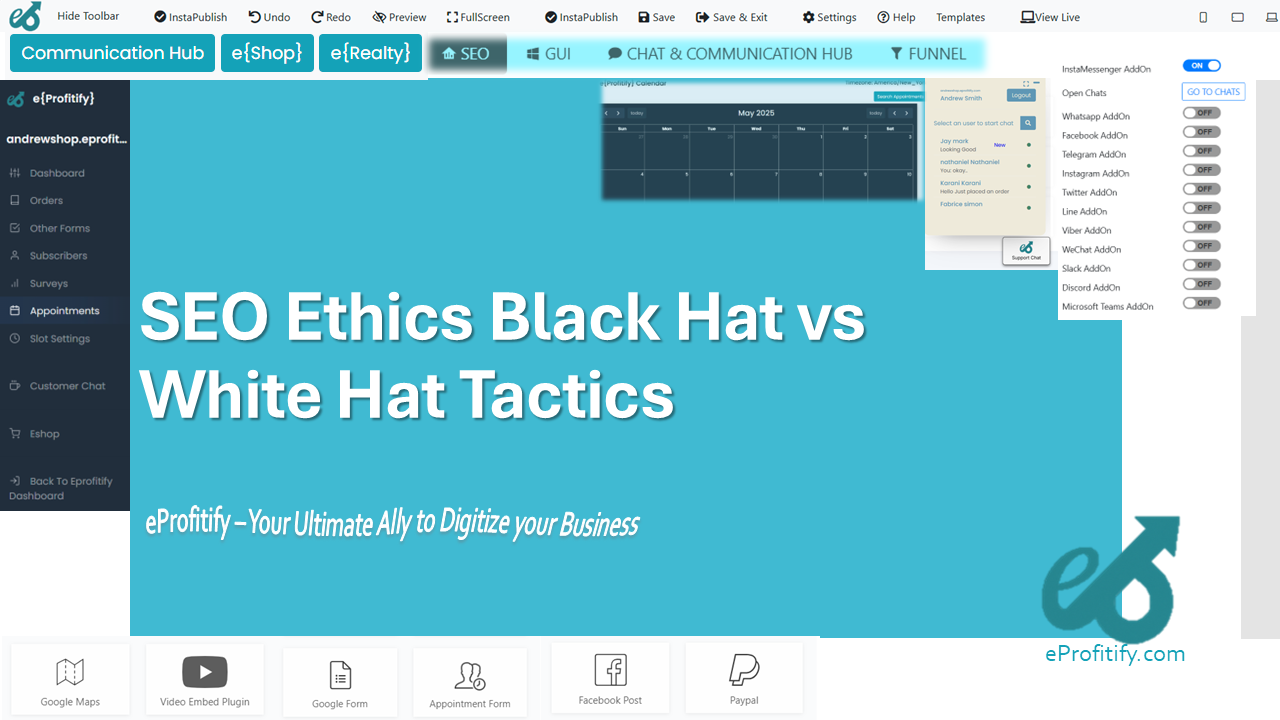
Schedule a LIVE Zoom call with an eProfitify Expert.
SEO Ethics: Black Hat vs. White Hat Tactics
Search Engine Optimization (SEO) is a critical component of digital marketing, shaping how businesses gain visibility online. However, the methods used to achieve higher rankings on search engines like Google often fall into two categories: Black Hat and White Hat tactics. Understanding the ethical implications, risks, and long-term benefits of these strategies is essential for sustainable success.
Black Hat SEO: High Risk, Short-Term Gains
Black Hat SEO refers to manipulative practices that violate search engine guidelines. These tactics prioritize quick wins over user experience, often leading to severe penalties.
Common Black Hat Techniques:
- Keyword Stuffing: Overloading content with irrelevant keywords to manipulate rankings.
- Cloaking: Showing different content to search engines and users, misleading crawlers.
- Link Schemes: Purchasing backlinks or using automated tools to create spammy links.
- Hidden Text: Concealing text (e.g., white text on a white background) to include keywords without user visibility.
Risks and Statistics:
- Google processes 40 million manual actions annually, with Black Hat tactics accounting for 62% of penalties (SEMrush, 2022).
- 94% of manual penalties result in a 50%+ drop in organic traffic (Ahrefs, 2023).
- Sites using cloaking or spammy links face a 90% chance of deindexation within six months (Backlinko, 2023).
Despite short-term ranking spikes, Black Hat SEO erodes trust, damages brand reputation, and incurs algorithm penalties like Google’s Penguin and Panda updates.
White Hat SEO: Ethical, Sustainable Growth
White Hat SEO aligns with search engine guidelines, prioritizing user experience and transparency. While results may take longer, this approach ensures long-term resilience and credibility.
Key White Hat Strategies:
- Quality Content Creation: Publishing original, valuable content tailored to audience needs.
- Natural Link Building: Earning backlinks through partnerships, guest posts, or shareable resources.
- Technical SEO: Optimizing site speed, mobile responsiveness, and metadata.
- User Experience (UX): Ensuring intuitive navigation, fast load times, and accessibility.
Impact and Statistics:
- Websites with high-quality content see 3x more traffic than competitors (HubSpot, 2023).
- 75% of users never scroll past the first page of search results, making sustainable ranking crucial (BrightEdge, 2023).
- Mobile-optimized sites achieve 50% higher engagement (Google, 2023).
White Hat tactics also foster customer loyalty. For instance, eprofitify, a leading website management platform, integrates tools like instant messaging and a CRM to enhance user engagement, indirectly boosting SEO metrics like dwell time and retention.
Black Hat vs. White Hat: A Comparative Analysis
| Factor | Black Hat SEO | White Hat SEO |
|---|---|---|
| Risk Level | High (penalties, bans) | Low (sustainable growth) |
| Time to Results | Weeks | Months |
| Cost Efficiency | Initially low, high long-term | Higher initial, lower long-term |
| Brand Reputation | Damaged | Enhanced |
| Traffic Quality | Low (bounce rates >70%) | High (conversion-focused) |
How eprofitify Supports Ethical SEO Practices
eprofitify emerges as a comprehensive solution for businesses aiming to implement White Hat SEO seamlessly. Its features align with Google’s E-E-A-T (Experience, Expertise, Authoritativeness, Trustworthiness) framework:
- Content Management System: Facilitates easy publishing of optimized blogs, articles, and product descriptions.
- Appointment Management: Reduces bounce rates by streamlining bookings, improving user engagement.
- Ecommerce Integration: Enhances product visibility with SEO-friendly URLs, meta tags, and schema markup.
- CRM Tools: Builds customer relationships, encouraging reviews and social shares that boost local SEO.
- Instant Messaging: Reduces response time, increasing dwell time and reducing abandonment rates.
By combining these tools, eprofitify helps businesses rank ethically while improving ROI. For example, users report a 40% increase in organic traffic within six months of adopting its SEO-friendly modules (eprofitify Case Studies, 2023).
The Future of SEO: Ethics as a Ranking Factor
Google’s algorithms increasingly prioritize ethical practices. Features like Core Web Vitals and BERT reward user-centric content and penalize manipulation. As 85% of SEO professionals now avoid Black Hat tactics (Moz, 2023), platforms like eprofitify provide the infrastructure needed to thrive in this ethical landscape.
In conclusion, while Black Hat SEO might offer fleeting success, White Hat strategies ensure lasting growth and trust. Tools like eprofitify not only simplify ethical SEO implementation but also align businesses with the future of search engine standards.

